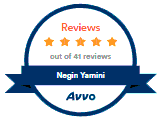At certain points in life, you take part or be involved in events that may require official government documentation, such as birth and death, weddings and divorce, and even court cases, which can include both civil and criminal situations. In most instances, the majority of the documents related to these events and their related court cases become part of the public record. This means that anyone who searches or requests the government who maintains the records can see information regarding these events.
But you may not want certain information to be accessible to the public at large, for any number of reasons. In that case, you can petition the court to seal a particular document or set of documents, known as a record. Once a record is sealed, it prevents anyone from viewing the files unless they obtain a court order to unseal the documents.
Our team at Record Expungement Attorney put this information together to help you understand record sealing. In this article, we explore the practice of sealing records and provide general information about when and how records can be sealed and unsealed. Importantly, the practice of record sealing varies widely across jurisdictions and the type of case (civil vs. criminal). For instance, most states in the U.S. require a court record to unseal records once they have already been sealed, but other states actually go so far as to destroyed records upon their court-ordered sealing.
Record sealing in California is a common court request, but each county may have their own procedures or requirements for the record sealing process. To that end, this information should not be used as legal advice. Instead, speak with a lawyer or attorney about your specific situation and whether record sealing is an appropriate action for your needs.
WHAT DOES IT MEAN TO SEAL A RECORD?
Record sealing is the process wherein a person petitions the court to remove records about a particular court case from the public record. In a democratic country that values the importance of information, documents are often made available for the sake of transparency. But record sealing is a way for individual citizens to feel a release or some privacy from certain sensitive information that may exist in those public documents.
The term “sealing” derives from the tradition of placing a seal on a document. This seal or emblem is a way to make an impression in clay, wax, or paper that indicates the document has remained closed since the seal was placed. The seal prevents people from opening or viewing the document without receiving a court order.
Of course, in today’s internet accessible world, real, tangible documents are very rare. Instead, most documents reside online in databases, often searchable at the state or county level for the public at large. But if a court has ordered a document to be sealed, that specific record will no longer be available in public. Instead, in most cases, a person seeking information contained within a sealed record would need to petition the court to unseal the record for a limited or infinite amount of time.
THE BENEFITS OF RECORD SEALING
Depending on your situation and the records in question, sealing a record can help you maintain a level of privacy that is beneficial, particularly when applying for or maintaining a job, seeking housing, or obtaining a financial opportunity. In these scenarios, it is common for the company or agency to perform a background check. Arrests, infractions, and criminal convictions can appear, which, often immediately, can result in a denial of your situation from the company or agency in question. That means you may not get the job, the house, or the bank loan you need.
Record sealing also prevents sensitive information from staying in the public view. You may be a victim of a crime that you don’t want accessible to the public at large, or you may need to protect sensitive information, that was important in a court case, from reaching non-authorized parties.
IS SEALING A RECORD THE SAME AS EXPUNGING A RECORD?
Though the terms record sealing and expunging or dismissing a record are often used interchangeably, they are in fact different actions with different outcomes.
Sealing a record removes that specific record from the public view, but it does not erase a conviction or an arrest – meaning that event still occurred. Expunging, on the other hand, keeps a record in public view but instead of a decision accompanying the court case, the public record reflects that the case has been “dismissed”.
WHAT TYPES OF RECORDS CAN BE SEALED?
While we often associate record sealing with criminal records, they are only a portion of the types of documents that citizens request to seal. Many records can be sealed that deal with civil matters, such as marriage or adoption.
Types of records that may be sealed include, but aren’t limited to, the following:
- Juvenile criminal records, which applies to any crimes you committed before your 18th In California, the state courts do not immediately or automatically seal your juvenile criminal records upon reaching adulthood. Instead, as soon as you turn 18, you are able to petition the courts to seal your records. Five years later, the courts will entirely destroy your juvenile criminal records.
- Juvenile-related records, particularly ones that involve children as victims or other non-criminals, such as custody cases or child sex offense cases. These cases are often sealed in order to protect the identity of the children involved.
- Birth records, particularly in cases of closed adoptions, wherein the identity of one or both birth parents are anonymous.
- Marriage and divorce records, particularly in order to maintain your privacy, though these are more difficult to pursue unless you need to protect the identities of children, victims to a crime, state or trade secrets, or other particularly sensitive material
- Witness protection cases, wherein a federal or state agency has offered to protect a witness in exchange for first-person testimony that may put the witness in significant harm if the public at large could access the information.
- Cases regarding trade secrets, such as practices, formulas, copyrights, trademarks, processes, designs, commercial methods, and even intellectual property that may be known or developed by a specific company or organization. In these instances, the organization may seek to keep their information private as a competitive advantage within their industry.
- Cases regarding state secrets, including information that may be deemed sensitive information for a government. Court cases may include classified or top-secret information, which we understand that only certain individuals with appropriate security clearance at government and government-adjacent agencies may have obtained.
WHO CAN SEAL A RECORD?
Individuals involved in criminal or civil court cases can opt to petition for a record sealing. The defendant, who may or may not be determined guilty, can request to seal a record. Additionally, other people involved in the case may seek to seal the related records, including the prosecuting side, the victims, or the family of the one of the parties. Sealing a record is often a way of protecting specific information or privacy.
Interestingly, states and companies have the right to seal records, too, especially in the case of preventing certain knowledge, such as sensitive state or trade secrets, from reaching the hands of competitors, whether other business or other states or countries who may use the information to compete or otherwise undermine your actions.
HOW DO I SEAL A RECORD?
California Rules of Court Rule 2.551 outlines the procedures for records to be filed under seal. Importantly, it is illegal for a record to be sealed, known formally as “filed under seal”, without a specific court order. A court cannot order a record to be sealed simply because both parties involved request it, even if both parties agree.
- The party files a motion or an application to seal a record. This must include a memo and a declaration that provides reasoning and facts to justify the record sealing. These facts must show the following:
- A significant interest that overrides the public’s right to access the record.
- The significant interest supports the action of record sealing.
- It is likely that the significant interest will be prejudiced against if the record is not sealed from the public.
- The proposal for sealing is specific and narrow (it should not include wide swaths of unsensitive material).
- No other, less restrictive means will support the significant interest instead of sealing the record.
- All parties who appear in the case must receive copies of the motion or application for sealed records.
- In most instances, parties that already have access to the records to be sealed are served with two versions of the records: the complete, unredacted version and the redacted version. Once the records are sealed, only the redacted version is available to any persons who were not a party to the case.
- The copies that go to the court should be labeled as “conditionally under seal” and be provided to the court clerk.
- If the court orders the records be sealed, the following conditioned must be met:
- Any paper versions must be labeled with “sealed by order of the court” and list the date the sealing became official.
- The court order further states whether other records related to the case are to be sealed, such as the register of actions, other court records, and even the court order itself.
- The order states whether any other person other than the court itself has the authority to inspect the sealed records.
- Unless the order states otherwise, the order makes illegal for any parties to the case to disclose contents of any sealed materials in any subsequent public filings.
Once records are sealed, the courts store any tangible, hard copies securely and separately from the public case file. Digital files must be stored under appropriate access controls so that only authorized parties can access them.
CAN I OPEN A SEALED RECORD?
Upon the sealing of a record, only the few authorized parties are able to view it upon request. The general public cannot see the sealed record. In general, the only way for a non-authorized person to view a sealed request is to request to unseal or open the record.
The process to unseal records is similar to the process for sealing them.
- A party or a member of the public, uninvolved in the case, can move, apply, or petition the court to unseal a record. The court itself can decide to unseal a record, in extenuating circumstances.
- All parties related to the case must be notified of the petition to unseal the records.
- If the court decides to unseal and open the record, the court must provide all parties notice of the opening, as well as the reason for unsealing it. The court makes this decision in accordance with California Rules of Court Rule 2.550(c-e), which says that:
- Court records are presumed to be open and available unless the law requires confidentiality.
- The record may only be sealed if expressed facts in the record establishes an overriding interest, as explained above.
- The content and scope of order must be in line with the California Code of Civil Procedure sections 629 and 645.
- Any notified party has 10 days from receiving court notice about the upcoming record opening to file an opposition.
- Any other party can file a response to the opposition within five days of receiving an opposition.
- Should the court stay its path in choosing to unseal the record, the court unseals either the entire document or only a part of it. If additional records in the physical or electronic record are sealed, the unsealing documents must include whether these additional records are also unsealed or are to remain sealed.
Record sealing can be an extremely beneficial way to clear your record or simply to protect your privacy. It can be used both as a first step or as a last-ditch effort to improving your criminal background. At Record Expungement Attorney, we specialize in helping people across Riverside and the greater Inland Empire region clean their records. Get your life and opportunities back on track by calling us today at 951-916-9248.









